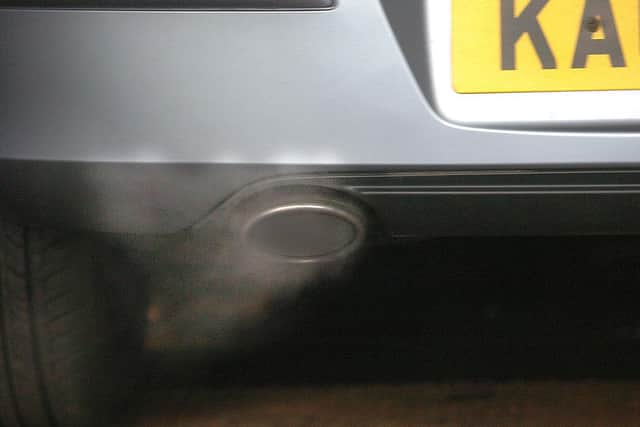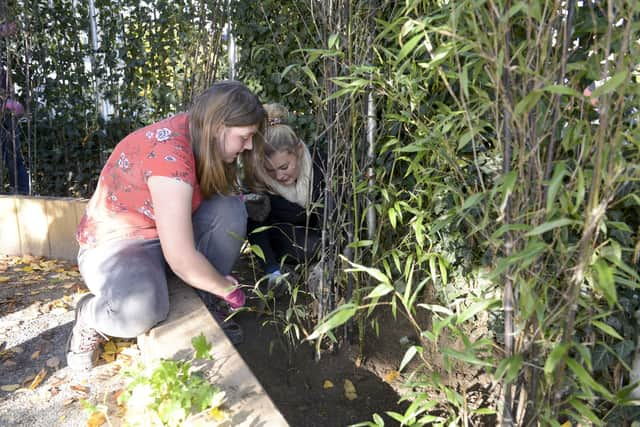Two-thirds of Sheffield schools affected by unsafe air pollution levels, campaign warns
and live on Freeview channel 276
Global Action Plan, a charity that co-ordinates Clean Air Day, has launched new research which finds 277 out of 422 schools it tested in the Sheffield postcode district are located in areas above World Health Organisation (WHO) air pollution limits.
The postcode district covers the city but also Rotherham, Barnsley, Worksop, Mexborough, Chesterfield and North East Derbyshire.
Advertisement
Hide AdAdvertisement
Hide AdThe total percentage affected is 65.64 per cent. That is far higher than the UK average revealed by the data.


Global Action Plan found that in total, 27% of UK schools, including nursery, primary, secondary and sixth form, are in areas above World Health Organisation (WHO) air pollution limits, which equates to more than 3.4 million children in England, Scotland and Wales learning in an unhealthy environment.
The research launches today, Clean Air Day (Thursday, June 17), which in light of the data is aiming to protect our children’s health from air pollution.
The data collected by EarthSense is the most comprehensive and up-to-date sample of air pollution taken from all schools across the UK and is based on data input from a 2019 annual average data set.
Advertisement
Hide AdAdvertisement
Hide AdThe data measures concentrations of PM2.5 (particulate matter with a diameter of 2.5 microns or less). These tiny particles can cross from the lungs into the blood and then move around the body, causing conditions such as heart and lung disease.


The charity reviewed air quality outside schools because children are particularly vulnerable to its impacts and spend a significant amount of time at school.
At Hunters Bar Primary, the school collaborated with University of Sheffield researchers to design a green barrier of plants and shrubs to filter pollution from passing cars.
The campaign calls for people to leave the car at home and to stop making unnecessary online delivery orders and wants schools, local councils and health professionals to raise awareness on air pollution and what should be done to tackle it.
Advertisement
Hide AdAdvertisement
Hide AdBusinesses are asked to address their impact on air quality and make a public statement outlining their commitment to protect children’s health.
A free online tool – www.transform-our-world.org/programmes/clean-air-for-schools - gives teachers, headteachers, parents and local authorities a bespoke blueprint of actions for tackling air pollution in and around the school.
However, Graham Turnbull of Clean Air Sheffield said the major problem is not traffic pollution – it’s solid fuel burning, including wood-burning stoves. He said 12 per cent of air pollution comes from all transport, whereas solid fuel burning contributes 40 per cent.
He also pointed out that the UK and EU air pollution limits are “unrealistically high” at 25PMU – the WHO limit is 10.
Advertisement
Hide AdAdvertisement
Hide AdGraham said: “The level should be 2 or 3. We have days in Sheffield where it’s 50, 60, 70. On Bonfire Night it’s in the hundreds. There’s days when I try to stay at home.”
He added: “Most of the concern is misdirected. The conversation quickly turns to vehicles, Dieselgate and cars idling outside schools. But the biggest source of that pollution is sold fuel burning.”
Larissa Lockwood, director of Clean Air at Global Action Plan, said: “The fact that 27% of UK schools are above WHO air pollution limits is extremely alarming. Air pollution is not a fact of life. If we all do our bit, it can be solved with collaborative action and education.”
Sarah Hannafin, policy advisor at the National Association for Head Teachers (NAHT), commented: “One thing the COVID-19 crisis has shown us is that we can do things differently. As we now begin to try and return to a more normal way of life it's important we don't just automatically take up old habits but try to use this opportunity to find better options, for ourselves and the planet.
Advertisement
Hide AdAdvertisement
Hide Ad"The impact of the pandemic on children has been huge; we need to do everything we can to make sure we safeguard their futures. One vital way of doing that is to ensure they return to a safe, clean and healthy environment where they can learn, play and thrive.”
